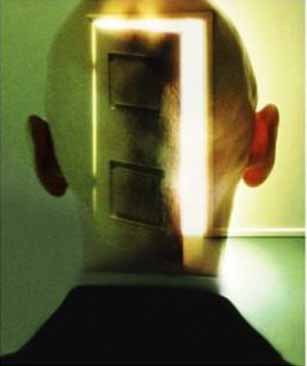

In metaphysics, doors, windows, portals, and the like, take us from one reality to another based on the movement of space-time and consciousness. In an average meditation one closes their eyes then moves their consciousness through a door to experience, during which something is shown that reflects their current journey and issues.
Sometimes one remembers what is shown, others times the movement of the mind through a door is forgotten when the person's consciousness returns here. The same can be said of dreamscapes and out of body experiences.

Walking through doorways causes forgetting, new research shows
We’ve all experienced it: The frustration of entering a room and forgetting what we were going to do. Or get. Or find.
New research from University of Notre Dame Psychology Professor Gabriel Radvansky suggests that passing through doorways is the cause of these memory lapses.
Entering or exiting through a doorway serves as an 'event boundary' in the mind, which separates episodes of activity and files them away. Recalling the decision or activity that was made in a different room is difficult because it has been compartmentalized.
Conducting three experiments in both real and virtual environments, Radvansky's subjects - all college students - performed memory tasks while crossing a room and while exiting a doorway.
In the first experiment, subjects used a virtual environment and moved from one room to another, selecting an object on a table and exchanging it for an object at a different table. They did the same thing while simply moving across a room but not crossing through a doorway.
Radvansky found that the subjects forgot more after walking through a doorway compared to moving the same distance across a room, suggesting that the doorway or 'event boundary' impedes one's ability to retrieve thoughts or decisions made in a different room.
The second experiment in a real-world setting required subjects to conceal in boxes the objects chosen from the table and move either across a room or travel the same distance and walk through a doorway. The results in the real-world environment replicated those in the virtual world: walking through a doorway diminished subjects’ memories.
The final experiment was designed to test whether doorways actually served as event boundaries or if one's ability to remember is linked to the environment in which a decision. In this case, the selection of an object - was created.
Previous research has shown that environmental factors affect memory and that information learned in one environment is retrieved better when the retrieval occurs in the same context. Subjects in this leg of the study passed through several doorways, leading back to the room in which they started.
The results showed no improvements in memory, suggesting that the act of passing through a doorway serves as a way the mind files away memories.